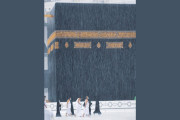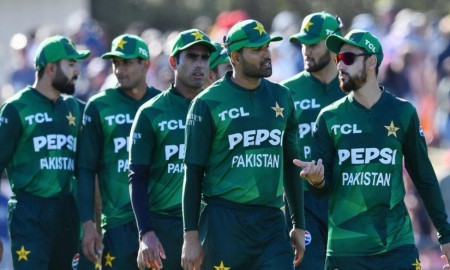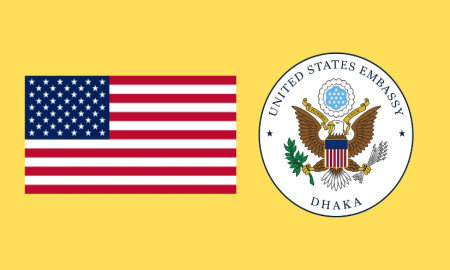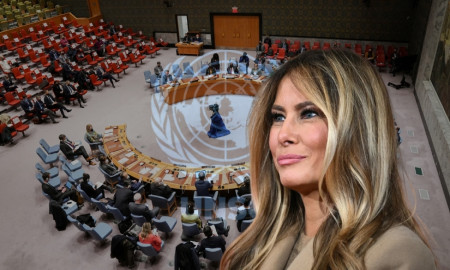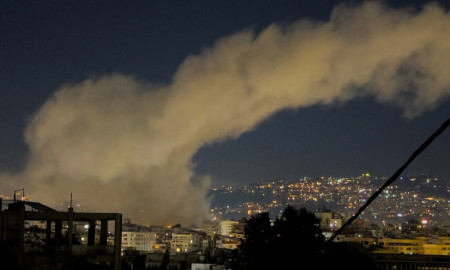The Phoenix of Extremism
How Banned Political Parties Reemerge and Challenge Democracies

Democracies all over the world face a persistent problem: radical parties that were banned for endangering social order frequently return in new forms, occasionally gaining the power to rule or very nearly do so. These groups rarely completely disappear, from the remains of communism in Eastern Europe to the ruins of fascism in Italy. They change their image, soften their language, and capitalise on popular discontent.
If we look back into history, many political parties were banned due to extremism, violence, racism, or authoritarianism, as discussed in this article. It highlights a persistent obstacle to democratic resilience by following their deconstruction, reappearance, and political relevance.
Italy: From Mussolini’s Fascists to Meloni’s Government

After Italy's defeat in World War II, Benito Mussolini's National Fascist Party (PNF) was dissolved. The party's involvement in war crimes, authoritarian leadership, association with Nazi Germany, and the establishment of a totalitarian government that persecuted dissenters and carried out atrocities were the primary causes for the ban.
It was a decisive dismantling. The purges of fascist officials, the trials of prominent figures, and the confiscation of party property were all overseen by Allied forces and Italy's interim government. Partisans even put Mussolini to death. Fascist symbols and propaganda were prohibited by laws like the Scelba Law (1952) and the Mancino Law (1993), while new constitutional provisions prohibited the reconstitution of fascist organisations.
Fascist ideologies continued to exist nonetheless. The Italian Social Movement (MSI), a neo-fascist party founded in 1946 by former loyalists, attempted to function within democratic bounds while still honouring Mussolini. MSI changed its name to the National Alliance (AN) in 1995 in an effort to convey a more traditional conservative image. Later, some members of AN got away and assisted in the formation of Brothers of Italy (FdI) in 2012.
FdI, under the leadership of Giorgia Meloni, capitalised on discontent over immigration and economic stagnation. With Meloni as prime minister, it formed a ruling coalition in 2022 after gaining 26% of the vote. Although scandals, such as young people who were caught giving fascist salutes, continue to cast doubt on how much of the past still influences the movement, she is still in office in 2025.
Israel: From Kach to Otzma Yehudit

In 1988, Rabbi Meir Kahane's Kach party was banned from participating in elections, and under anti-terrorism laws, it was completely banned in 1994. The party's overtly racist policies, calls to expel Arabs from Israel, and encouragement of violence led to its condemnation. Its demise was sealed by the Cave of the Patriarchs massacre in 1994, in which 29 Palestinians were killed by a Kach supporter.
Authorities responded quickly, freezing assets, arresting leaders, and designating Kach as a terrorist organisation. In 1990, Kahane was assassinated. In 2004, Kach was listed as a foreign terrorist organisation by the United States.
But the ideology resurfaced. Itamar Ben-Gvir alongside other former Kach members founded Otzma Yehudit (Jewish Power) in 2012. The party promoted anti-Arab views, albeit with a slightly more moderate tone. To win over more right-wing voters, Benjamin Netanyahu arranged for Otzma to join religious Zionist coalitions in 2019. It joined Netanyahu's coalition in 2022 after having joined the Knesset by 2021. After being named national security minister, Ben-Gvir had a say in security and settlement policies.
Otzma Yehudit resigned from the government in January 2025 over a ceasefire agreement in Gaza, calling it a "victory for terror." The party still has a lot of power, even when it is in opposition.
Germany: Nazi Shadows and the AfD’s Rise

Following Germany's defeat in World War II, the Nazi Party (NSDAP) and its organizations were outlawed in 1945. Through the Nuremberg Trials, extensive denazification programs, and constitutional bans on extremist groups and symbols, Allied authorities oversaw the party's dismantling and banned it for genocide, war crimes, and totalitarian rule.
However, neo-Nazi organisations such as the 1964-founded National Democratic Party (NPD) emerged. Most recently, in 2017, attempts to ban the NPD failed.
The Alternative for Germany (AfD), which started as a eurosceptic party in 2013, quickly embraced far-right ideologies. It promoted anti-immigration and nationalist stances that mirrored some of the Nazi era's rhetoric. Parts of the party are now categorised as extremist by German intelligence.
In 2024, the AfD won its first state election in Thuringia, marking the first far-right triumph in Germany since 1945. It received between 20 and 25 percent of the vote in the federal elections held in February 2025, making it the largest opposition party. It is still in parliament, ostracised by potential coalition partners but growing in strength, despite mounting calls to ban it.
Moldova: Communist Return After the Soviet Collapse

In 1991, not long after gaining independence from the Soviet Union, Moldova banned the Communist Party of Moldavia (PCM). For its part in authoritarian rule, repression, and involvement with Soviet-era atrocities like deportations and the stifling of dissent, the party was banned.
As part of broader decommunisation efforts, the new government dissolved the party, confiscated its assets, and forbade communist symbols.
The Party of Communists of the Republic of Moldova (PCRM), headed by Vladimir Voronin, was formed by former communists just two years later. In 2001, the reformed party won a landslide victory and remained in power until 2009. Moldova became the first post-Soviet state to have a communist return to government thanks to its campaign, which combined leftist policies with nationalism.
Even though pro-European parties have surpassed the PCRM as a minor opposition force by 2025, its legacy is still important.
Nepal: From Banned Revolutionaries to Ruling Coalitions

During the monarchy in Nepal, the Communist Party of Nepal (CPN) was banned. During the Panchayat era, members of the party faced arrests and repression due to their revolutionary extremism and connections to the Maoist insurgency.
Communist factions increased despite the ban. The 1996 Maoist insurgency grew into a civil war that lasted for a decade. The insurgents eventually entered politics, and in 2018 the Maoist Centre and the Communist Party of Nepal (Unified Marxist-Leninist) merged to create the Nepal Communist Party (NCP).
After winning a landslide election, the NCP governed until 2021 before disintegrating due to internal strife. Communist parties continue to play a significant role in politics, though. The UML's KP Sharma Oli returned as prime minister in July 2024, leading a coalition. Nepal's political landscape is still dominated by leftist parties, despite growing anti-communist criticism.
Chile: From the Nacis to the Republican Party

The 1938 coup attempt by Chile's National Socialist Movement (MNSCH), commonly referred to as the "Nacis," resulted in the Seguro Obrero massacre, which claimed over 60 lives. Due to its extremism, violence, and ties to Nazi Germany, the group was quickly banned. The party was dissolved under President Arturo Alessandri after its leaders were imprisoned or killed.
The Popular Freedom Alliance, which later merged into the Agrarian Labour Party and then the National Party, reemerged as a remnant. Augusto Pinochet's 1973 coup and dictatorship were aided by these waves. They transformed into parties like the Independent Democratic Union (UDI) and National Renewal (RN) following the return to democracy in 1990.
José Antonio Kast left UDI in 2019 and started the Republican Party. With 44 percent of the vote, he advanced to the 2021 presidential runoff on a hardline nationalist platform. By 2025, the Republicans did not acquire executive power, but they are still influential in Congress and have established themselves as a far-right alternative.
Why Do Banned Parties Reemerge?
Democracies struggle with countering extremism, as evidenced by the repeated resurgence of banned movements. With the support of networks of supporters and evolving political grievances, ideologies outlive organisations. In the long term, outright bans often fail because groups rebrand, modify their language, and take advantage of democratic rights like free speech to re-enter politics.
Such revivals are fuelled by polarisation, cultural tensions, immigration fears, and economic hardship. Dissatisfaction is channelled by populist leaders into movements that have historical resonance but assert legitimacy in the present.
Democracies run the risk of witnessing history repeat itself, with extremist parties repeatedly emerging from the ashes, unless the root causes are addressed through inclusive economic growth, education, and stronger institutions.

